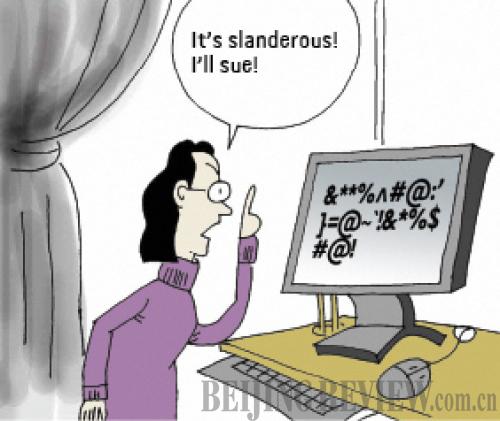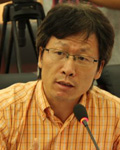|
 |
|
(CFP) |

When discussing the relationship between the Internet and human rights, we need to have a broad exploration of human rights issues across the current media environment, featuring rapidly growing technologies and increasingly extensive applications.
It is worth emphasizing that, since the Internet and its related applications are still under development, with Chinese society at a transitional stage, it is important for us to look at these issues with a dynamic view and handle human rights concerning the Internet in an open and updated manner.
Different origins, same goals
Human rights have a much longer history than the Internet. After World War II, human rights became the dominating discourse system of world politics as well as an important basis for resolving international disputes and major domestic issues.
The Internet was initially intended for military purposes as a solution to data storage and sharing among different computers during war time. Due to its great potential in data transmission and content sharing, the Internet entered colleges and research institutes in the 1990s, thus gradually becoming available for civil use.
Although starting late in comparison to the United States and other Western countries, China has caught up fast and is growing rapidly in terms of its Internet industry. In addition to the fast growth of netizens and domain names, China has its own Internet industry leaders such as Baidu, Tencent and Alibaba, which are among the top such companies in the world.
Chinese human rights have also progressed along with the flourishing Internet. In spite of their different properties and functions, the Internet has much to do with human rights. The Internet has had a huge impact on the theories and practice of human rights since it first debuted on the historical stage.
Interrelated relationship
The Internet's interrelation with human rights is reflected in the fact that people can use it to exercise and enjoy a series of interrelated yet slightly different rights, such as free speech and press, or freedom of expression in scholarly terms, which are recognized and protected by Human Rights Conventions and constitutional laws.
With the progress of network technologies, the Internet has become a hit-area of crimes such as defamation and violation of individual privacy as surfing online has become increasingly indispensable in modern daily life, which mainly accounts for why more and more state authorities enhance legislation and enforcement concerning the Internet to crack down on cyber crimes and protect individual rights for a more civilized and orderly cyberspace. Meanwhile, as the Internet plays a more significant part as in connecting various social resources, more and more economic, political and cultural activities take place online, and thus the Internet not only comprehensively changes the way people live, but also affects their conception of human rights and the ways of exercising and protecting the rights on the whole.
The Internet has almost all the features of other mass media prior to it. It exists as both print media and electronic media. Naturally, one can find in cyberspace the same human rights issues that once appeared in other forms of the mass media.
As a result, we should have a broader vision in discussing the relationship between the Internet and human rights. It is the appearance of print media in the 15th century that made people recognize what an important role individual expression, oral and written, has played in fulfilling oneself, promoting social stability, and even supervising the government and improving public politics, as well as how the publication license system damaged individual souls and national culture. It is also during the process of system criticism that a relatively systematic theory of modern free press was proposed, laying a solid foundation for modern theories of human rights.
| 